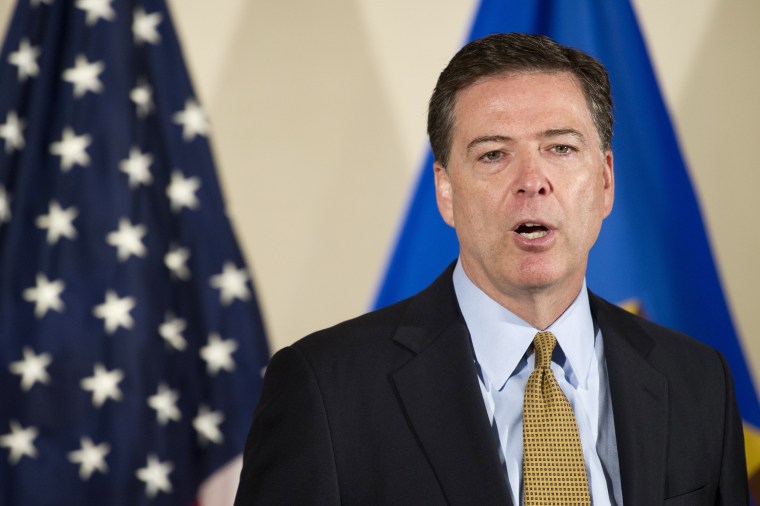There was no clear evidence Hillary Clinton intended to violate the law or mishandle classified information.
That was the core finding from FBI Director James Comey’s unusual press conference Tuesday, announcing his recommendation against any charges in the case.
Legally, that finding matters more than anything else Comey said, because that was the law enforcement task the FBI set out to tackle. It is worth pausing to focus on this point, amid all the heated, instant reactions to the news.
After all, the FBI is not in charge of policy oversight for the State Department — a function designated for Congress. The FBI is not assigned journalism projects on potential hacks that may or may not have occurred — a task better left to reporters and bloggers. And the FBI certainly does not weigh in on the wisdom of actions taken by various politicians and government officials — absent evidence of a crime, that kind of opinion is best left to the voters.
Comey seemed to wade into each of those areas in his announcement.
There was no “direct evidence” Clinton’s email domain was hacked, he said, but “it is possible that hostile actors” gained access to her email.
“Since when does the FBI publicly speculate about things it doesn’t know,” asked former DOJ official Matt Miller, or “can’t prove?”
Related: FBI Recommends No Criminal Charges Against Hillary Clinton
Comey announced “there is evidence” Clinton and her aides were “extremely careless” in handling classified information. This sounds harsher than it may actually be, since there can be some evidence of a conclusion that is not actually true. It is also, given the recommendation against charges, a non-legal observation about Clinton’s approach to the job. It may be right, and voters may find her whole approach to secrecy and classified information to be wanting. But it is an aside.
The same type of language is at work in a statement that bogged down the State Department’s daily briefing Tuesday.
“While not the focus of our investigation, we also developed evidence that the security culture of the State Department,” Comey said, “was generally lacking in the kind of care for classified information found elsewhere in the government.”
This “developed evidence” may be warranted. Or it may not be.
Related: A Painful, but Acceptable Outcome to the Clinton Email Saga
It may reflect a fairly common dynamic in prosecutorial work — zeroing in on a target, investigators find some dirt near the target. Is the FBI’s inquiry into email practices at a single government agency really a firm foundation to rank it against unnamed email practices applied “elsewhere in the government”?
This comparison is not so much “apples to oranges” as it is “apples to no apples.”
None of these issues suggest Comey’s non-legal commentary was inaccurate. It was simply not the core competence of the FBI, and it serves to illustrate why the bureau does not generally give long presentations on investigations in the first place.
Given the material, however, the political and media worlds have fixated on many of the points, which certainly do raise questions about Clinton’s past statements and approach to email.
Related: Lynch Will Accept FBI Recommendations on Clinton Emails
The clearest legal conclusion remains Comey’s recommendation against charges. He seemed particularly emphatic by noting throughout history, his investigators “cannot find a case that would support bringing criminal charges on these facts."
Cases that did lead to prosecution, such as the much-discussed plea deal for General David Petraeus, included “clearly intentional and willful mishandling of classified information,” or so much material exposed that “intentional misconduct” was implied, or, most ominously and never suggested in this case, an intentional “disloyalty to the United States.”
Those are the criminal standards the FBI used and found lacking. The rest of the debate, about judgment and care and professionalism, is in the policy and political sphere – where it belongs.

